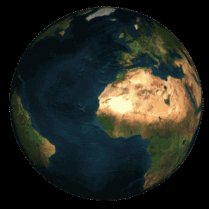San Diego Environmental Issues
Students entering the University of San Diego and/or declaring a major during 2016-2017, should follow information contained in the printed course catalog (also known as the "catalog of record") published on October 1, 2016. Access the catalog of record at
Introduction
The environmental and ocean sciences major, offered by the Department of Environmental and Ocean Sciences, is intended for students interested in the natural world, with three distinct pathways that focus on marine ecology, environmental sciences or environmental studies. All pathways are designed with an interdisciplinary approach, either within the natural sciences (marine ecology and environmental science pathways) or across the natural sciences, social sciences and humanities (environmental studies pathway). The curriculum trains students to apply the scientific method to study critical environmental issues while promoting ethical judgment and behavior as it relates to the scientific process, environmental awareness, and the role humans play within the dynamic earth system. The environmental and ocean sciences major offers students intellectually challenging conceptual training coupled with practical hands-on experience in the field and lab to prepare them for graduate school and diverse environmental career opportunities.
Structure
The environmental and ocean sciences major offers a common preparatory curriculum for all three pathways, designed to prepare students for both the core upper division environmental science classes and the suite of electives they will take as part of the major. Several of the courses in the preparation for the major satisfy core curriculum requirements. Following the common preparatory courses, all students take two gateway courses into the major: a) an in-depth analysis of contemporary environmental issues, and b) an introduction to field and research applications, in which students conduct interdisciplinary marine research in local ecosystems. During the junior and senior years, students take courses in one of three pathways and complete a capstone experience involving undergraduate research with faculty or experiential internships that culminate in a presentation of their findings. Faculty-student research collaborations may involve summer research programs, local or international field work, and the opportunity to participate in professional conferences or publications. In addition to research with faculty, certain courses offered through study abroad programs (such as the School for Field Studies or the Sea Education Association) may satisfy some requirements of the major, including the experiential portion of the capstone.
Pathways
Depending on their interests and goals, environmental and ocean sciences majors choose one of three pathways: marine ecology (which includes a biology minor), environmental science, or environmental studies. Students are encouraged to select an advisor as soon as possible. A list of advisors is available from the chair of the Department of Environmental and Ocean Sciences.





